 History
History  History
History  Weird Stuff
Weird Stuff 10 Everyday Products Surprisingly Made by Inmates
 Movies and TV
Movies and TV 10 Actors Dragged out of Retirement for One Key Role
 Creepy
Creepy 10 Lesser-Known Shapeshifter Legends from Around the World
 Animals
Animals 10 Amazing Animal Tales from the Ancient World
 Gaming
Gaming 10 Game Characters Everyone Hated Playing
 Books
Books 10 Famous Writers Who Were Hypocritical
 Humans
Humans 10 of the World’s Toughest Puzzles Solved in Record Time
 Mysteries
Mysteries 10 Scientific Mysteries We Don’t Fully Understand
 Weird Stuff
Weird Stuff 10 Celebrities Who Have Admitted to Alien Encounters
 History
History Ten Revealing Facts about Daily Domestic Life in the Old West
 Weird Stuff
Weird Stuff 10 Everyday Products Surprisingly Made by Inmates
 Movies and TV
Movies and TV 10 Actors Dragged out of Retirement for One Key Role
Who's Behind Listverse?

Jamie Frater
Head Editor
Jamie founded Listverse due to an insatiable desire to share fascinating, obscure, and bizarre facts. He has been a guest speaker on numerous national radio and television stations and is a five time published author.
More About Us Creepy
Creepy 10 Lesser-Known Shapeshifter Legends from Around the World
 Animals
Animals 10 Amazing Animal Tales from the Ancient World
 Gaming
Gaming 10 Game Characters Everyone Hated Playing
 Books
Books 10 Famous Writers Who Were Hypocritical
 Humans
Humans 10 of the World’s Toughest Puzzles Solved in Record Time
 Mysteries
Mysteries 10 Scientific Mysteries We Don’t Fully Understand
 Weird Stuff
Weird Stuff 10 Celebrities Who Have Admitted to Alien Encounters
10 Reasons Lincoln Was Secretly A Terrible President
Was Abraham Lincoln as worse president than Donald Trump? Is Lincoln—man who freed the slaves in 1862—as bad as Trump, the impeached president who stirred up a gaggle of MAGA patriots into breaching the United States Capitol? Let’s review.
Abraham Lincoln: hero, martyr, vampire hunter—Honest Abe is the president all other presidents want to be seen as by Americans and the world. In his single term, he freed the slaves, held the Union together, and generally showed the world how to run a country like a total boss. It’s too bad he just happened to do it all while being a despicable, authoritarian bungler. But worse than Trump? Let’s see…
SEE ALSO: 10 Dark Secrets Of Donald J. Trump
10 Imposing Government Censorship
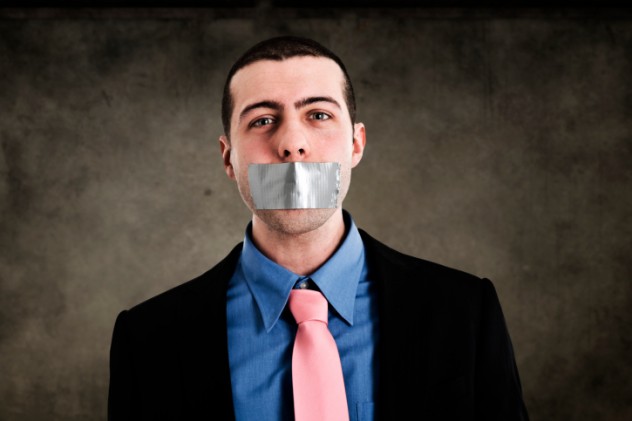
Let’s pretend for a second that today’s front page of The New York Times is running a big hatchet job on Trump. The claims are unsubstantiated, even libelous, and contain quotes misattributed to the president that could damage America’s relationship with Russia. Now imagine the article turns out to be a fake and Trump responds by sending in the military to seize the paper’s offices and arrest its editors. There’d be outrage, right?
Well, that’s exactly what Lincoln did in 1864. When two newspapers got conned into printing a fake message from the president, Honest Abe reacted by ordering a military takeover of the titles. The rationale was that the article in question was damaging to the government during a time of national crisis—an excuse you may recognize as one recently deployed by Egypt’s bloodthirsty military junta. In the end, Lincoln did the right-ish thing by having the imprisoned editors released—three months after he gave freedom of speech a flying kick to the teeth.
9 Deporting His Critics

While we’re on the subject of free speech and all, let’s meet Clement L. Vallandigham. An Ohio Democrat during the dark days of the Civil War, he was by all accounts a bit of a miserable idiot. He liked nothing better than to rile his Republican rivals by opposing everything they stood for. Since this was the 1860s, that meant campaigning to end the war and criticizing Lincoln for his cavalier approach to civil liberties. A criticism Lincoln responded to by having Vallandigham arrested, tried by the military, and deported behind enemy lines.
Just to be clear, Vallandigham wasn’t a spy. He wasn’t aiding the Confederacy. He was just a guy who had a misguided admiration for the South and felt uneasy about winning a war by crushing civil liberties. Deporting him for expressing these views was about as far from democracy as you can possibly get. Then again, Lincoln did a lot of things that don’t exactly sit well with our idea of a democratic leader.
8 Suspending Habeas Corpus
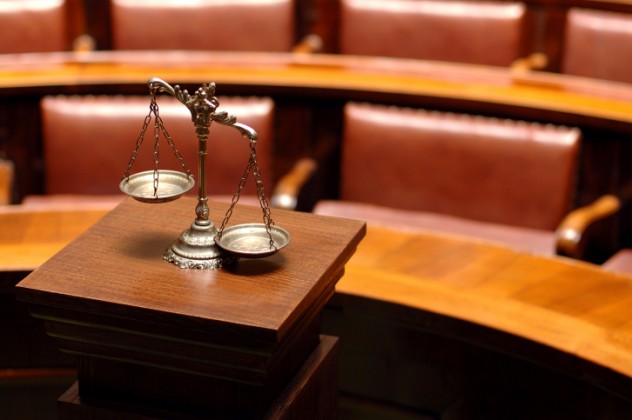
If you’ve ever so much as been in the same room as a lawyer, you’ll know that habeas corpus is an important legal principle. In essence, it means that any state that orders your arrest must then justify your continued imprisonment before a judge. Getting rid of it means anyone can be summarily rounded up, imprisoned, and left to rot. Lincoln ditched it within two months of taking office.
To be fair, the 16th president had his reasons. There was immediate danger in April 1861 of Maryland seceding to join the Confederacy, and Washington risked being overrun by Southern troops. The trouble is, when you’ve crossed a line once, crossing it again becomes a lot easier. Once he was done imprisoning Maryland’s legislature, Lincoln turned his sights to the rest of the country—and the results weren’t pretty.
Without waiting for congressional approval, Abe authorized the indefinite imprisonment of citizens across the Union, culminating in an 1862 attempt to have habeas corpus suspended for draft-dodgers—a suspension he intended to enforce by deploying the military against state judges. Although it was a measure born of desperate times, it allowed Jefferson Davis to portray the Confederacy as a place where liberty was valued—a move that nearly won the South some vital allies in Europe. It could have been an utter disaster—the fact that it wasn’t only proves how little appetite Europe had for declaring war.
7 Appointing Ambrose Burnside
For a president widely agreed to have been a strategic genius, Lincoln sure had a knack for picking incompetent generals. In November 1862, he ordered talentless nobody Ambrose Burnside to take control of the Army of the Potomac—an outfit so well-trained and equipped that anybody should have been able to lead them to victory. Do you want to guess what happened next?
Five days after taking up his post, Burnside unveiled to Lincoln his plan for a daring assault on the Confederate capital. The President gave his approval and Burnside marched his troops into the Battle of Fredericksburg—a humiliating slaughter that saw the Union defeated with embarrassing ease. Undeterred by his costly failure, Burnside waited just over a month before launching his next offensive—a little something known today as the Mud March.
Originally a plan to outflank General Lee’s troops, the Mud March quickly dissolved into farce after Burnside led his men through an apocalyptic rainstorm. Bogged down, the Yankees fell over one another, marched into each other’s units, and created a vast human traffic jam that sent the Confederates into hysterics. To make matters worse, Burnside attempted to boost morale by issuing each man hard liquor—resulting in a mass of disheveled, drunken Union soldiers brawling with one another in a seething mess of mud and idiocy. Lincoln finally removed the incompetent general in January 1863, but not before he’d single-handedly made a mockery of the entire Union war effort.
6 Reversing General Hunter’s Emancipation Proclamation
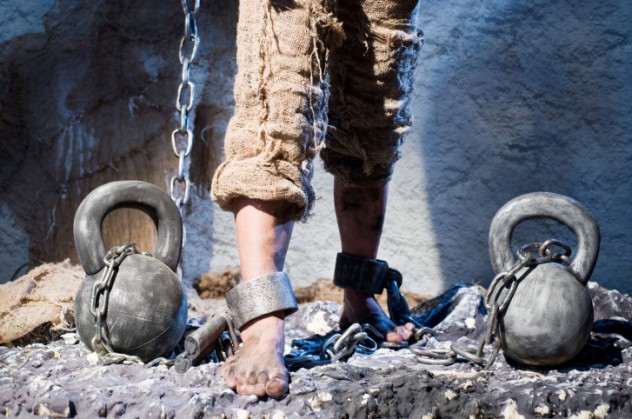
It’s no secret that Lincoln utterly detested slavery. He once famously remarked that “if slavery is not wrong, nothing is wrong.” But there was at least one other thing he hated with equal ferocity—subordinates stepping on his toes. In May 1862, these two passions collided with depressing results.
A few weeks earlier, Union soldiers under the command of General David Hunter had managed to occupy a fair chunk of South Carolina, Florida, and Georgia. With the Confederacy now vanquished in the region, General Hunter did something both deeply heroic and entirely unexpected—he declared all former slaves in the occupied states free. Sadly for the 100,000 or so slaves his proclamation affected, a week later the “Great Emancipator” reversed his order, crushing any dreams of freedom they may have had.
Sure, Hunter never really had the right to issue his order, and Lincoln himself would devise the general Emancipation Proclamation just a few months later. Still, the incident remains a reminder that Lincoln valued other things above abolition—namely, his own inflated ego.
SEE ALSO: 10 Ways Things Would Be Different If The Confederate States Had Won
5 Appointing General Hooker

General Joseph Hooker may not have been as comically incompetent as old Ambrose Burnside up there, but in his own special way, he was probably worse. Appointed to replace Burnside after the Mud March, he was so obviously unsuitable for command that Lincoln personally wrote him a letter telling him as much—an odd move, given that it was Lincoln who’d made the appointment. (If Lincoln were alive today, would he have sent the note as a tweet?) Within months of getting the gig, Hooker had already ratcheted up a decisive defeat—sending his troops into the hellish Battle of Chancellorsville.
By rights, this should have been an easy Union victory. Lee’s army of 60,000 was spread thin and facing a Yankee force of over 130,000 men. Instead, Lee’s military genius and Hooker’s complete lack of it combined to create a Union slaughter. 17,000 Yankee troops were killed or wounded, 5,000 more than during the nightmare of Fredericksburg. When Lee’s victorious troops subsequently made a dash for Pennsylvania, Hooker completely failed to stop or counter them and wasted valuable time focusing on the Confederate capital instead of giving chase. Finally, on the eve of the Battle of Gettysburg, Lincoln removed him from his post—the first smart move he made in nine months of hiring idiots.
4 Supporting Slave Owners

Lincoln’s modern reputation is that of a brilliant man who would stop at nothing to do the right thing, especially regarding slavery. The truth is somewhat less perfect. In reality, Lincoln was first and foremost a pragmatist. Sometimes that pragmatism led him to support some truly disgusting laws.
Take the Fugitive Slave Act. This depressing bit of psychopathy made it a citizen’s duty to hunt down and report runaway slaves on pain of imprisonment and an enormous fine. It also stripped all Black people of what few rights they had and made it possible for free-born men to be enslaved if a plantation owner simply claimed they were a runaway. Not only did Lincoln not oppose this law, he ran on a platform of enforcing it in the Northern States, most of which had traditionally ignored it. But even this doesn’t come close to his support for the 13th Amendment.
Yes, there were two 13th Amendments—the one Lincoln’s now associated with, and the one he openly supported in his inaugural address. The purpose of this original 13th Amendment was to make it illegal for congress to interfere with slavery in the South, virtually guaranteeing it would last forever. That’s right—the man who eventually “freed the slaves” very nearly condemned them to an eternity of servitude instead. How different history could have been.
3 Failing Native Americans
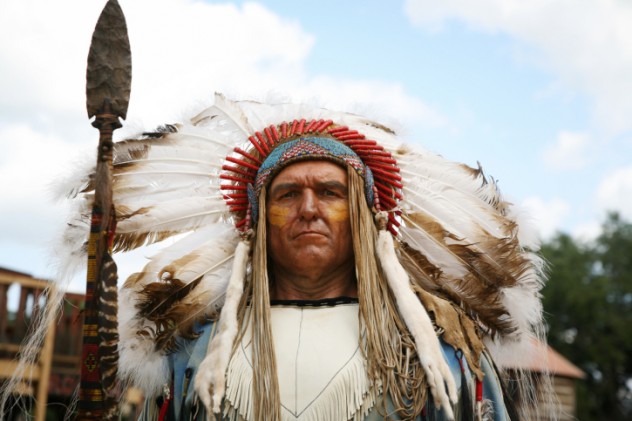
By now, you’ve probably guessed that Lincoln wasn’t exactly the great equality-lover that Hollywood likes to pretend he was, but there’s one ethnic group who felt that more keenly than perhaps any other. For all their talk of equality, the first Republican presidency in history was marked by a shocking wave of brutality toward Native Americans.
In 1863, the Lincoln administration oversaw one of the biggest land-grabs in history—turfing the Navajos and Mescalero Apaches out of their New Mexico territory and into a reservation called Bosque Redondo 725 kilometers (450 mi) away. The journey there was the very definition of a death march. Thousands of people were herded across the baking desert with little in the way of supplies, surrounded by an army who summarily executed stragglers. When the survivors made it to Bosque Redondo, they were shoved into squalid, disease-ridden camps and simply left to die. By the time the decision was reversed, one-third of those interred were dead of exposure or starvation.
As bad as that is, it’s far from the only example. Massacres were frighteningly routine during these years and often went unpunished—unless it was the Native Americans doing the massacring, in which case execution was de rigueur. That’s before we get onto the devastation caused by the Pacific Railway Act of 1862 and the thousands it displaced. In short, the presidency of Abraham Lincoln wasn’t a great time to be Native American.
2 Overseeing A Concentration Camp
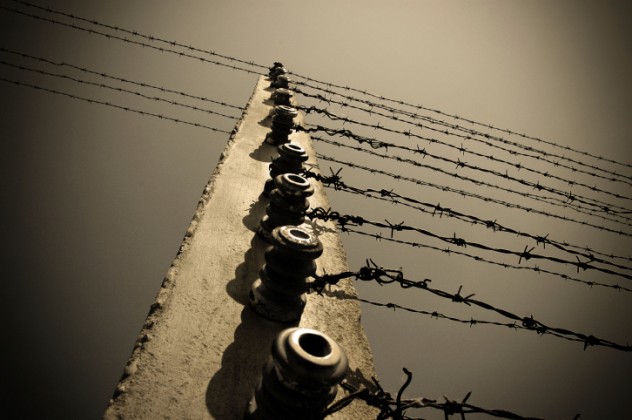
It wasn’t just Native Americans who got to experience death camps during the Lincoln years. Welcome to Camp Douglas—the sort of place for which the phrase “hell on Earth” was coined. If you were a Confederate troop during the grim years of 1862 through 1965, there was a good chance you’d wind up there—and an equally high chance that you’d die soon after. Intended to house 6,000 prisoners, it usually held closer to 12,000, and such severe overcrowding had consequences.
There wasn’t enough food, so inmates were fed on spoiled meat and potatoes. Sanitation was nonexistent and a lack of sewers meant piles of waste built up, creating a haven for bacteria. Smallpox, malaria, and other diseases ran rife, killing dozens. Rainstorms would turn the camp into a fetid mud bath, while the winter would freeze inmates to death. Vermin had run of the place and the prison hospital was overflowing with the bodies of the sick and disabled.
It was Lincoln’s Guantanamo—a chamber of horrors on American soil that made a mockery of any claims of decency and justice. Although Jefferson Davis’ Confederacy oversaw equally brutal camps, Camp Douglas remains a stain on Lincoln’s record as a place where ideals of hope and democracy went to die.
1 Advocating Ethnic Cleansing
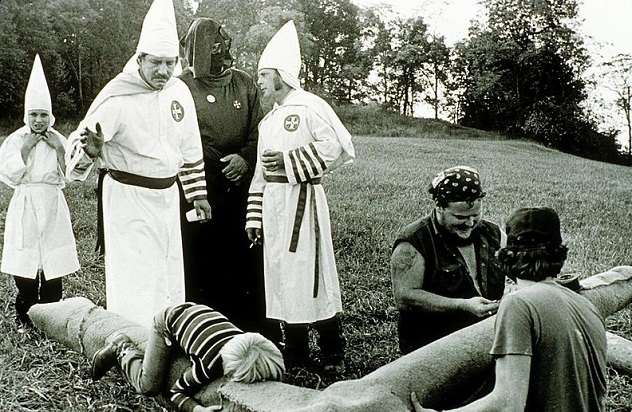
Most of us probably don’t associate Abraham Lincoln with concepts like ethnic cleansing, but Honest Abe had one thing he wanted almost as much as a slavery-free America—an America that was completely and utterly devoid of black people.
For nearly his entire life, Lincoln supported—and, at times, was the driving force behind—a plan to round up every black person in the country and forcibly ship them to another one. This wasn’t just an idle wish, either. In 1863, Lincoln personally approved an order for freed slaves to be sent to remote colonies in Central and South America. A “test” shipment of 450 emancipated slaves was even dispatched to Haiti, where their new colony was devastated by smallpox and starvation and the survivors had to be rescued. As late as fall 1864, Lincoln still intended to go ahead with this plan in some form or another, believing that whites and blacks would never be able to live together as equals. It’s possible that he even held this less-than-enlightened position right up until the very end.
It turns out that old Abe wasn’t quite the saint everyone would have you believe. He still did some incredible things in his single term as president—it’s just a shame that he had to counterbalance them with some truly hideous mistakes.
So what do you think? Was Abraham Lincoln worse than Donald J. Trump?
MORE LINCOLN: 10 Troubling Stories From The Life Of Lincoln








